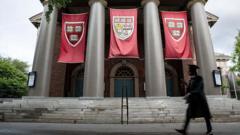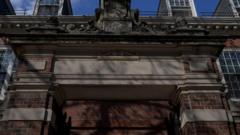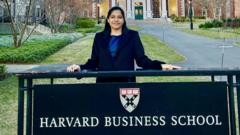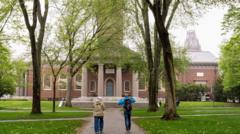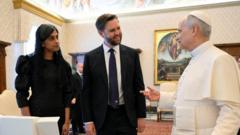Concerns over national security prompt the Trump administration to aggressively adjust visa policies for Chinese students, focusing on those affiliated with the Chinese Communist Party and studies in sensitive fields.
U.S. Moves to Intensify Visa Scrutiny for Chinese Students

U.S. Moves to Intensify Visa Scrutiny for Chinese Students
Secretary of State Marco Rubio announces stringent measures aimed at Chinese students, potentially impacting thousands of future applicants.
In a decisive move, Secretary of State Marco Rubio declared on Wednesday that the Trump administration intends to enforce a rigorous review process for Chinese student visas, indicating that those with connections to the Chinese Communist Party and enrolled in "critical fields" may see their visas revoked. This announcement has sparked concern among U.S. universities, which significantly rely on the financial contributions of international students, particularly from China, who are the second-largest group of foreign learners in the country.
Rubio emphasized that the State Department would reevaluate visa standards to ensure more stringent examination of future applications from individuals hailing from China and Hong Kong. Although 'critical fields' remains undefined, speculation suggests that it pertains to research areas like physical sciences, where there have been ongoing worries about the possible recruitment of U.S.-trained scientists by the Chinese government—despite a lack of substantial evidence supporting this claim.
The timeline for when the State Department and the Department of Homeland Security will begin enforcing these visa cancellations remains vague. Past actions by the Immigration and Customs Enforcement (I.C.E.) have already led to the detention of multiple foreign students whose visa statuses were changed under similar directives from the Trump administration, sparking a wave of legal challenges aimed at these immigration policies. As universities brace for the implications of these policy shifts, students and administration officials alike remain uncertain of the broader impact on academic collaboration and research efforts.






